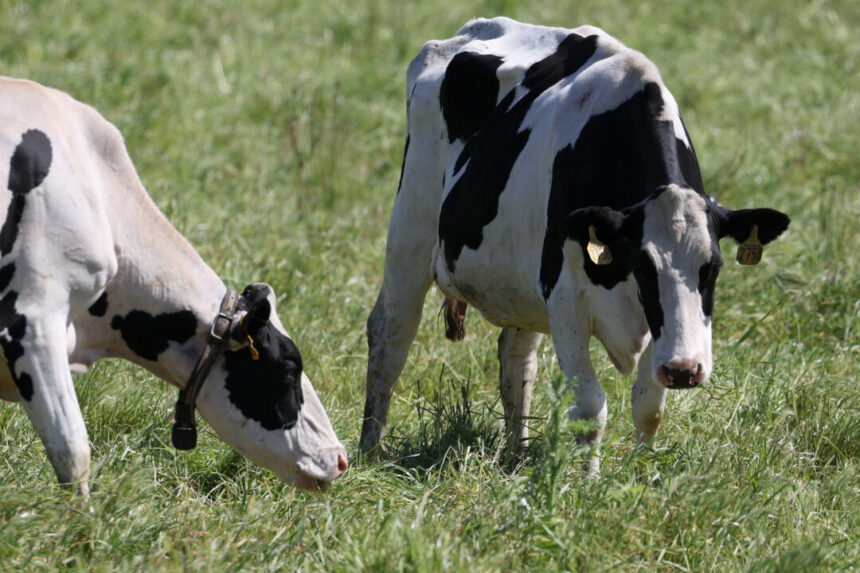The controversial cattle feed supplement, Bovaer, has sparked widespread attention on social media platforms. In recent weeks, major supermarkets have come under scrutiny for stocking products associated with Bovaer. Dairy producers have swiftly responded to the situation by reassuring customers and publicly stating that they do not use the additive.
Bovaer, a cattle feed supplement developed by Swiss-based company DSM-Firmenich, aims to reduce methane production in cattle by suppressing an enzyme that combines hydrogen and carbon dioxide in the cow rumen. Methane is a potent greenhouse gas, and initiatives like Bovaer are being tested to limit global warming.
Arla Foods, in collaboration with supermarket giants like Morrisons, Aldi, and Tesco, has been trialling Bovaer on British farms. Despite claims that Bovaer could reduce methane emissions by approximately 27 percent, concerns remain about its long-term effectiveness and potential impact on animal and consumer health.
Critics on social media platforms have raised alarm about Bovaer, citing potential risks and adverse effects associated with its active ingredient, 3-nitrooxypropanol (3-NOP). In response to the backlash, dairy producers and farmers have distanced themselves from the additive, emphasizing the importance of product quality and safety.
Both Arla and DSM-Firmenich have released statements defending the safety and efficacy of Bovaer, citing extensive scientific evidence from trials and studies. Experts have weighed in on the controversy, with some expressing concerns about the detection levels of the supplement in milk. Theoretical studies have shown that the levels of 3-NOP in milk at the proposed dosing levels are significantly lower than what is considered safe by the FSA. In cancer studies on rodents, some benign changes in mesenchymal cells were observed in a few male animals. Mesenchymal cells are versatile cells found in various tissues that can transform into different types of tissue.
Despite the benign tumors seen in rodents at certain doses, there is a safety factor of 170 between that dose and the FSA’s safe dose for the additive. Ian Musgrave, a senior lecturer in pharmacology at the University of Adelaide, reassured that the dosage used in cows would not cause harm.
Research on rats and cows indicated that doses of 300-500 mg per kg of body weight led to ovarian and testicular shrinkage. To put this into perspective, a 70 kg human would need to consume 21-35 grams of pure 3-NOP daily for weeks to see similar effects.
Senator Gerard Rennick highlighted the need for more scrutiny on the issue. The Australian Pesticides and Veterinary Medicines Authority stated that feed supplements solely for reducing methane do not meet the criteria for veterinary medicine regulation. Rennick questioned whether Bovaer, the product in question, should be considered a supplement or additive.
Source link





